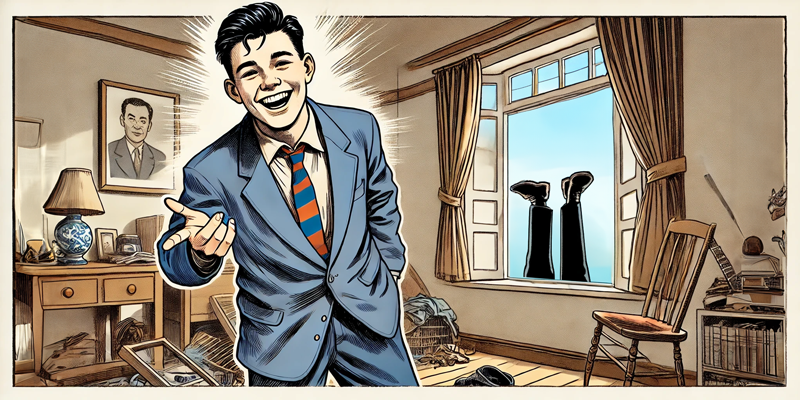Several examples from the history of the last century — with particular clarity in the Spanish Revolution and the rise of Nationalist Francisco Franco — follow a pattern. Communists made inroads and proved themselves to be such immoral, disruptive radicals that even fascists seemed preferable to ordinary people.
Modern Democrats in the United States know themselves to be engaged in a Communist revolution. They know themselves to be imposing radical change by any means necessary, regardless of the preferences of the electorate. And so they expect a populist fascist to be the result.
But the Trump Era differs in two important ways. First, as in so much else, America is exceptional, in the strict sense that it is an exception to historical rules. Just as our “conservatives” want to conserve classic liberalism, our populists want to return to representative democracy and individual freedom.
Second, Communism has metastasized, merging socialism and fascism to run the table for totalitarianism. The radicals absorbed the fascists, and there is no opposing totalitarianism. All that remains is the victory of either Democrat totalitarians or the ippsupporters of freedom.
[Open full post]When Elorza was mayor, it seemed embarrassing for him to take a public event as an opportunity to confront McKee, but his recent comments about public education in Providence, which formed the basis for the confrontation, suggest his emotions were well placed and genuine:
“What we have now is a system that locks in place the status quo, and with [educational] performance being so bad, the status quo is just indefensible,” he says. “There are frankly very few reforms in education that have provided game-changing results, and charter schools have done that in some places.”
Elorza is not to blame for the failure of the state to turn the schools around after a shocking Johns Hopkins report led to the state take-over. Failure was predictable the moment Education Commissioner Angelica Infante-Green arrived with the attitude of working with the teachers union. She should have begun building bonds with parents and the community as a counterweight to the paid activists. She didn’t, and the rest is history.
[Open full post]While the news cycle has definitely moved on from Michaels’s explanation of how crazy California has become, it’s worth pausing for an observation. By her own admission, she is and remains progressive. She’ll play along with a child’s gender dysphoria, for example, even if she thinks puberty blockers and schools’ lying to parents is beyond what should be acceptable.
The problem is her progressivism — progressivism generally — has no inherent stopping point. Michaels’s lingering common sense from a more-sane era is nice, but it’s quickly fading. So, progressives like her may move somewhere else and only vote for the level of radicalism they like, but that will bring the radicalism to which they object.
On WNRI 1380 AM/95.1 FM, John DePetro and Justin Katz discuss:
- Rhode Island and national Democrats coordinate their way through the Biden defenestration
- Survey says: Rhode Islanders have a low opinion of our direction and our governor
- Financial misadventures in the state housing office
Featured image by Justin Katz using Dall-E 40 and Photoshop AI.
[Open full post]A few weeks ago, Republican state representative and candidate for U.S. Senate, Patricia Morgan, came under the local media searchlight for some errors in campaign finance.
I don’t see anything particularly suspicious in the findings, but the story does give me an opportunity to restate my thoughts on campaign finance law. It’s just a way to trip up outsiders. We’re to the point that running for office nearly requires finding an outside accountant. A candidate running for multiple offices can’t mix the funds or use them to offset the personal burden of running for office.
Most telling, in this case, is that two people exceeded the maximum donation to Morgan, but the real problem is that her campaign didn’t attribute the donations to the donors and their spouses, which would have been just fine. Consider this error in contrast with the supposedly non-political money that Democrat Senator Lou DiPalma has been getting from a wealthy Newport developer.
Special interests can give politician high-paying jobs, even setting them up for life with income and perks that won’t all have to be made public, but a motivated citizen can’t just give a candidate $6,000 to help her or him run for office, even if it’s reported. This is a system designed to help the corrupt, not to increase transparency.
[Open full post]I’ll start with two arising from Ian Donnis’s recent article about the state’s approval of the sale of two hospitals “to an Atlanta-based nonprofit with no experience in managing hospitals.”
The first question arises from the description of the institutions as “cash-strapped safety-net hospitals.” Rhode Island, among all states, dove right into the centralizing forces of Obamacare and spent hundreds of millions on the Unified Health Infrastructure Project (UHIP). Why are we still having problems with our hospital system? Perhaps the government interventions failed so badly they made things worse? Worth looking into.
The second question is more about political assumptions. Consider this from the agreement:
“To mitigate poor management practices in the past by distant and self-interested owners, the board of the New CharterCARE System must adopt specific best governance practices, include local and community input, and may not alienate, encumber, or pledge New CharterCARE System’s assets without notice to and approval by the Attorney General.”
Why does the State of Rhode Island assume the attorney general is an expert on “best governance practices” in the healthcare industry? I could see his office reviewing for conformity with the law, but business and health decisions? Are we supposed to simply accept that lawyers are really smart people with the highest integrity, and therefore Neronha should be a key decision-maker?
I wonder if this mentality is another indication that our massive tangle of laws is changing how we think. Too many of our business, finance, and personal decisions hinge on what the law permits and requires, so we’ve reached the point that we think lawyers must know what we should do, not just our actions’ relation to law.
[Open full post]Which is: Why is our system not producing the type of leaders we need?
With Governor Daniel McKee, Rhode Island is getting a distilled lesson in our nation’s problem in D.C. At the same time his administration is signing a contract to pay a premium to dismantle the Washington Bridge quickly, he can’t find a company to rebuild it and admits to having no idea of the timeline or the cost. He’s not up to the job of governor.
In fairness to Rhode Islanders for making him their governor, we seem to have slender choices for all statewide and national elective offices. Turning nationally, the occupant of the White House is plainly and obviously not up for the job. I’d opine that Biden’s level of intelligence and integrity has never in his life qualified him to be President, but at this point, there is no question, and there was none in 2020.
On the other side of the aisle, while Donald Trump’s long business career certainly gives him the necessary managerial experience, his behavior is inarguably not what we should want in our national leader. Here, in fairness to Americans for electing him (hopefully twice), the political establishment had become so irresponsive (indeed, hostile) to the electorate and those who would represent them that it required a cartoonish personality to take the job.
So, back to the fundamental question: Why is our system not producing the type of leaders we need? I’d suggest that we’re trying to process too many social decisions through government, which pushes tremendous power and wealth through a tiny orifice. A system of grift has developed such that industries’ worth of special interests see elections as a fight for survival and respond like parasites to corrective treatments.
But we shouldn’t start with my conclusion. At the moment, it would be enough for Rhode Islanders and, more broadly, Americans to start discussing the question. I may be wrong, and shifting the debate from partisan snipes to structural debate would be a step toward healing.
[Open full post]On WNRI 1380 AM/95.1 FM, John DePetro and Justin Katz discuss:
- Democrats scramble for Biden-related messaging
- Whitehouse runs at the mouth
- The media caves
- Rhode Island and McKee beholden
- No bids for the Washington Bridge
Featured image by Justin Katz using Dall-E 40.
[Open full post]In mid-March, the day after his administration announced that a full replacement, not just repair, of the Washington Bridge would be needed, Governor Dan McKee promised
accountability and the day of reckoning for those who are responsible for the position we’re in …
further promising to
hold any responsible parties fully accountable.
even if that extends to the prior governor.
Gina Raimondo’s leadership came up and the Governor promised to hold those accountable, even if it goes back in time.
Part of that accountability was to be a “forensic analysis” which the governor said he expected to receive in the first week of April.
In early April — oops, the “forensic analysis” is still not complete because the firm conducting it now wants to view “archival documents”.
Almost simultaneously, Governor McKee announced that he had engaged a law firm
… tasked with seeking financial recovery from any responsible parties related to the Washington Bridge failure.
… The combined expertise on this legal team will put the State in a strong position to build the best possible case for Rhode Island taxpayers and deliver the accountability they deserve.
From that point, we all started getting the impression that the governor’s vision of “full accountability” was limited to trying to recoup money from the contractors who had worked on the bridge over the decades. Contractors who had gotten full sign off on their work from the state, via RIDOT, before they received payment.
WPRI’s Ted Nesi shares that impression, which he expounded on with Ian Donnis and Rhode Island Current’s Nancy Lavin on The Public’s Radio last week.
There’s been no big announcement of a, you know, a day of reckoning or even just a we figured out what went wrong we’re going to do this [try to recoup financially] instead. So, until that day comes, I think there’s going to be a lot of public frustration.
Now comes the stunning news that no company bid to rebuild the bridge.
Excerpt from Ken Block’s epic, spot-on reaction on GoLocalProv. (Please do read the whole thing.)
It is bad enough that the RIDOT did not properly maintain the bridge or proactively determine it was failing. Now, we pay the price because the RIDOT put together an RFP that was so deficient that no one would bid on it.
Full investigation. Now. Everyone under oath, specifically including the Director of RIDOT, every RIDOT staffer who viewed and/or signed off on Washington Bridge inspection reports and former Governor “Gina Jams” Raimondo.
Without this, the public cannot have confidence that our elected officials – not just the governor – are handling the catastrophic closure of the Washington Bridge with full transparency, honesty and the best interest of the public as the top priority.
[Open full post]I don’t want to make too much of it, but something seems off to me about Bill Bartholomew’s crusade against Providence businesses’ commandeering parking spaces to use for use in their valet parking service. (I assume that means they’re the spaces right in front of the businesses, allowing cars to pull in and then be parked by valets.) Previously, Bartholomew has tweeted about removing the cones and parking in the spots.
The off part is that, despite pretentions to being a journalist, he didn’t ask the businesses what they are doing and why. He went to the mayor’s office to ask about laws and fines. The impression is that he sees the business owners as “the Man,” abusing the system for their own profit, so they’re targets, not members of the community trying to resolve challenges as they play their part building the vibrant city that everybody claims to want.
The peculiarity is that this seems like it ought to be a solvable problem. A busy restaurant that holds a spot for valet processing may very well increase the amount of parking available. A restaurant, for example, efficiently packs dozens of cars in small lots for its patrons, who would otherwise park on the street or (more likely) just stop going into the city for dinner. That’s a gain all around. But for the sacrifice of that one spot per restaurant, the parking situation in the area would be multiples worse.
If the concern is that the city isn’t realizing revenue from the use of the spot, then the solution is a process for applying and paying for special use at particular times. I suspect the reality is the city has managed this matter using enforcement discretion up to now, and putting an actual system in place would probably be preferably.
Whether it ought to be a top priority just because Bill Bartholomew is annoyed is another question.
[Open full post]




